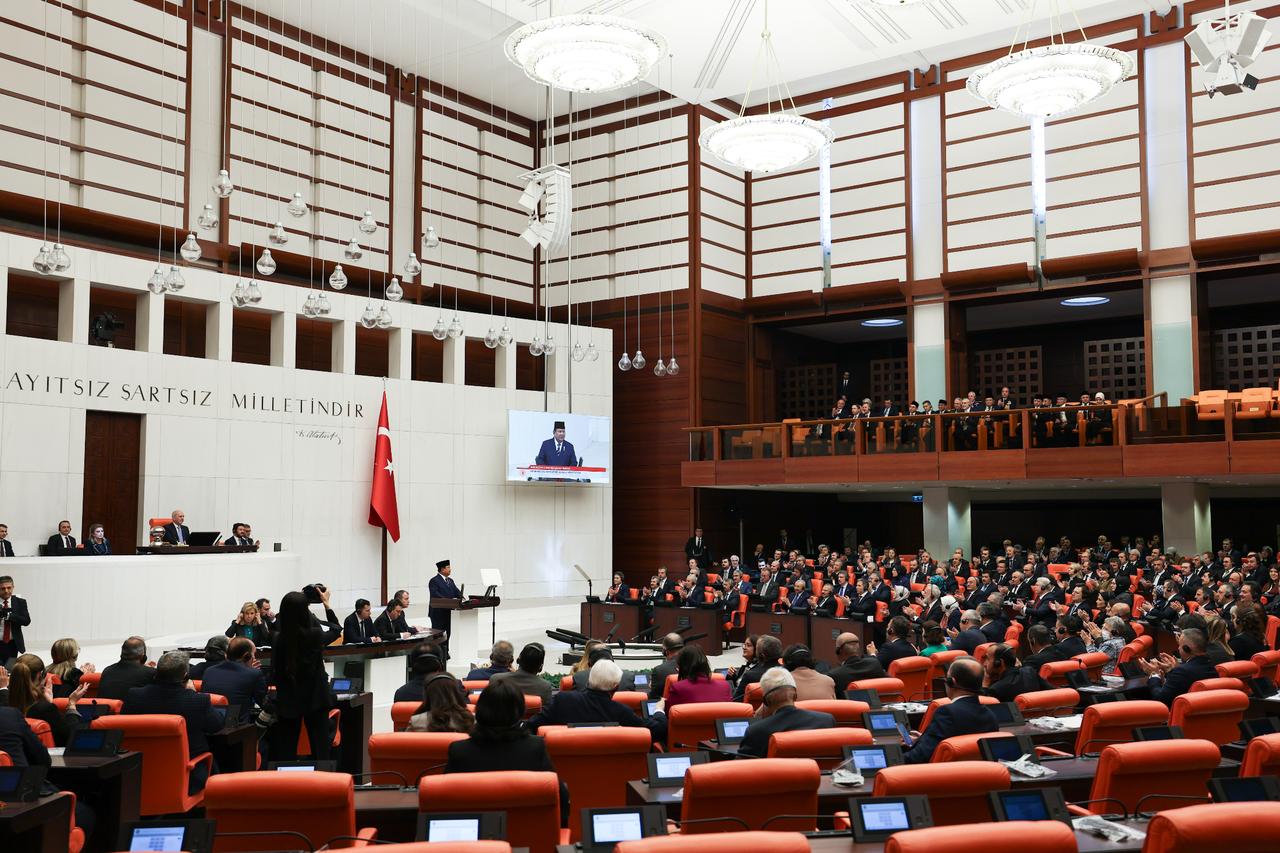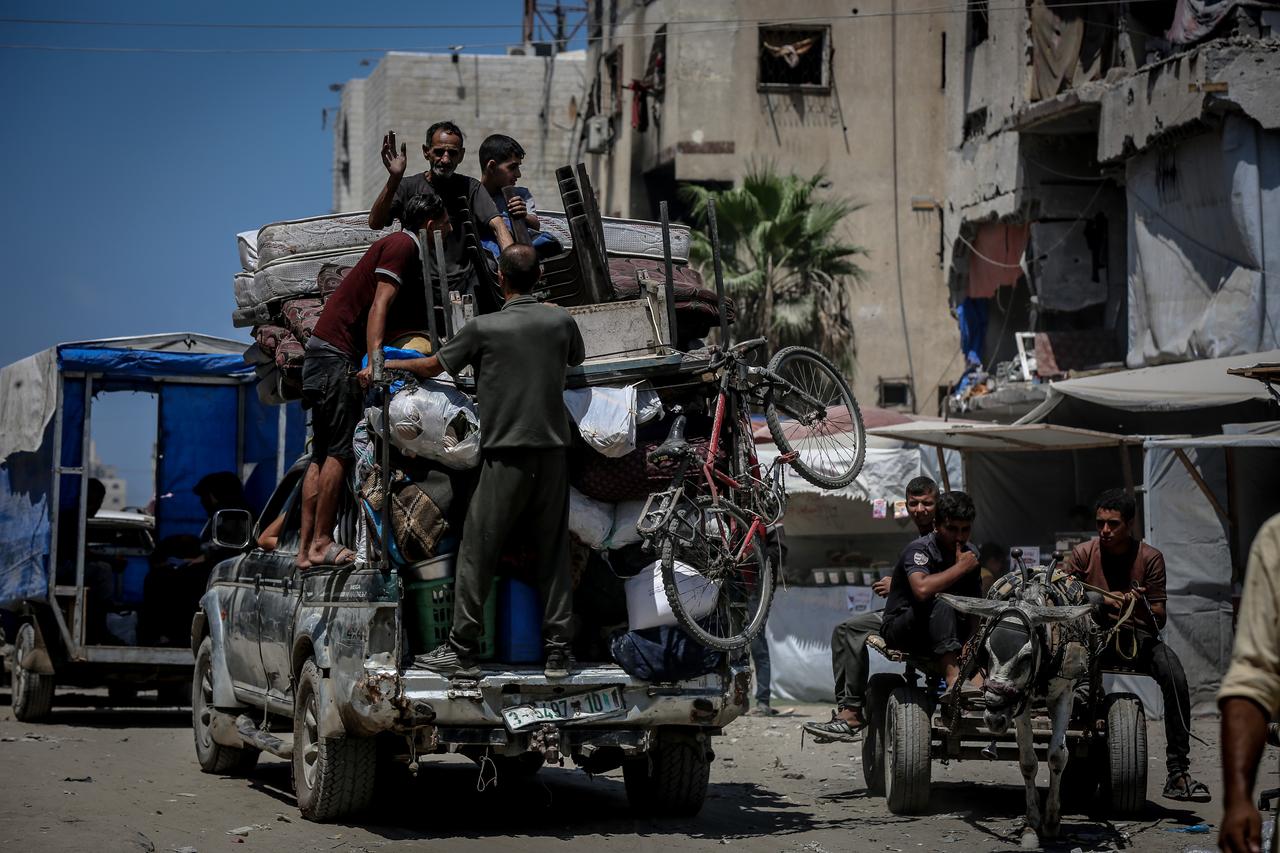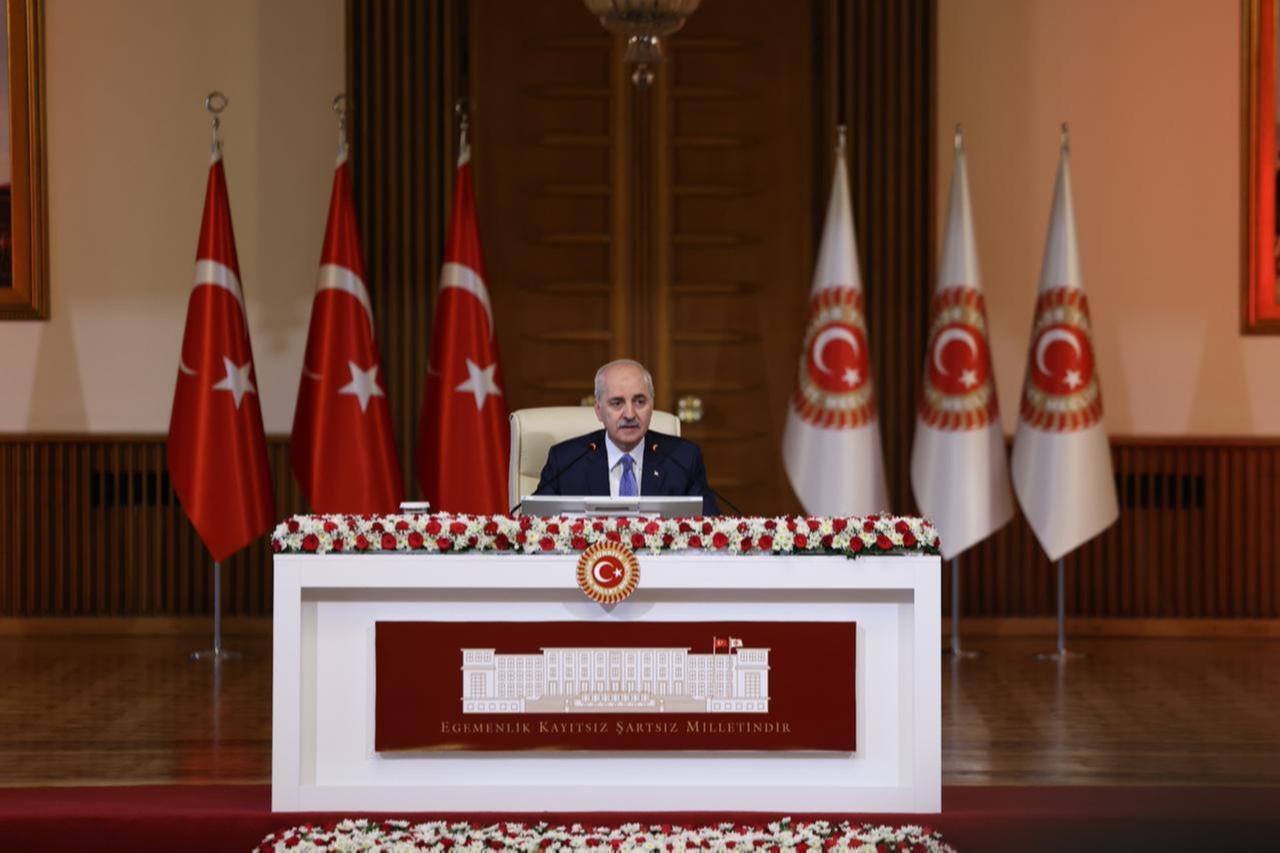
Turkish Parliament Speaker Numan Kurtulmus has called an extraordinary session for Friday, August 29, to address Israel’s attack on Gaza, which he described as involving genocide, oppression, and starvation policies.
The speaker’s office said Wednesday that Kurtulmus convened the session in line with Article 93 of the Constitution and Article 7 of Parliament’s Rules of Procedure.
Foreign Minister Hakan Fidan is expected to brief lawmakers during the meeting.
Israel, facing a genocide case at the International Court of Justice over its war on Gaza, has killed nearly 63,000 Palestinians—mostly women and children—in response to the Oct. 7, 2023, attack by the Palestinian resistance group Hamas that killed about 1,200 Israelis and left around 250 hostages, according to officials.
The military campaign has devastated the enclave, which is facing famine.
Last November, the International Criminal Court issued arrest warrants for Israeli Prime Minister Benjamin Netanyahu and former Defense Minister Yoav Gallant on charges of war crimes and crimes against humanity in Gaza.

Separately on Wednesday, Kurtulmus said developing a model unique to Türkiye in the pursuit of a “terror-free Türkiye” would mark a historic success for the National Solidarity, Brotherhood, and Democracy Committee.
Speaking at the committee’s sixth meeting, Kurtulmus said the body has already made significant progress and emphasized the importance of ensuring a solid legal framework in the next stages of the process.
Reflecting on the past nine months of the commission’s work, Kurtulmus described the progress as “remarkable,” noting that similar peace processes in other countries have taken years to reach the same stage.
“This issue must be resolved swiftly and removed from Türkiye’s agenda,” he said. “Establishing and implementing this model, unique to Türkiye, will be one of the historic achievements of this historic commission. This is also what our nation expects from us.”
Kurtulmus stressed that building a broad public consensus across Türkiye remains one of the commission’s primary goals. He said previous sessions had revealed a shared determination among participants from diverse parts of society, many of whom had been directly affected by decades of conflict.
He highlighted the message conveyed by the families of martyrs and veterans who have long suffered from the PKK terrorist group, which is also known for abducting and forcibly recruiting children.

“We have paid the price; we do not want future generations to do the same. We buried our children; now let us bury the weapons,” he said.
The PKK, listed as a terrorist organization by Türkiye, the United States, and the European Union, convened its congress in May and announced its dissolution following a February call by its imprisoned ringleader, Abdullah Ocalan, to end decades of attacks.
On July 11, a group of 30 PKK members, including 15 women, surrendered and destroyed their weapons in Iraq’s Sulaymaniyah province by throwing them into a burning cauldron.
As part of the new initiative, Parliament established the National Solidarity, Brotherhood, and Democracy Committee to evaluate the political and legal aspects of the post-terror era.